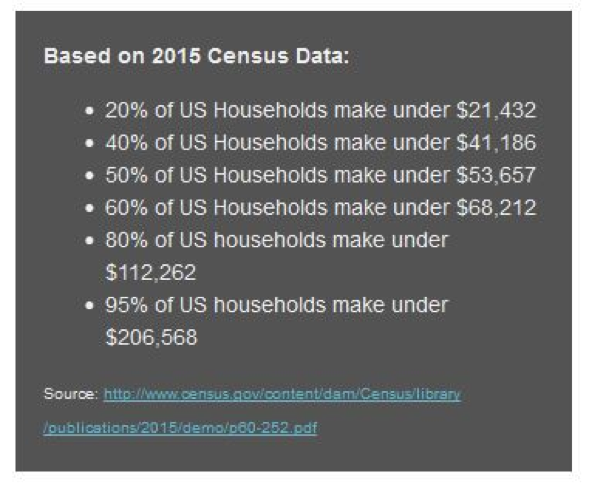Physicians Face Unique Financial Challenges
A doctor's high income and demanding insurance needs may call for specialized financial assistance.

Profit and prosper with the best of Kiplinger's advice on investing, taxes, retirement, personal finance and much more. Delivered daily. Enter your email in the box and click Sign Me Up.
You are now subscribed
Your newsletter sign-up was successful
Want to add more newsletters?

Delivered daily
Kiplinger Today
Profit and prosper with the best of Kiplinger's advice on investing, taxes, retirement, personal finance and much more delivered daily. Smart money moves start here.

Sent five days a week
Kiplinger A Step Ahead
Get practical help to make better financial decisions in your everyday life, from spending to savings on top deals.

Delivered daily
Kiplinger Closing Bell
Get today's biggest financial and investing headlines delivered to your inbox every day the U.S. stock market is open.

Sent twice a week
Kiplinger Adviser Intel
Financial pros across the country share best practices and fresh tactics to preserve and grow your wealth.

Delivered weekly
Kiplinger Tax Tips
Trim your federal and state tax bills with practical tax-planning and tax-cutting strategies.

Sent twice a week
Kiplinger Retirement Tips
Your twice-a-week guide to planning and enjoying a financially secure and richly rewarding retirement

Sent bimonthly.
Kiplinger Adviser Angle
Insights for advisers, wealth managers and other financial professionals.

Sent twice a week
Kiplinger Investing Weekly
Your twice-a-week roundup of promising stocks, funds, companies and industries you should consider, ones you should avoid, and why.

Sent weekly for six weeks
Kiplinger Invest for Retirement
Your step-by-step six-part series on how to invest for retirement, from devising a successful strategy to exactly which investments to choose.
Physicians face unique challenges when it comes to managing their finances. The importance of getting pertinent comprehensive advice to fit their specific situations can be a challenge that often goes unnoticed. Consider a sample doctor: Dr. Smith is 40 years old, married, has 2 kids and is making $250,000 in annual salary. We will compare her to household incomes in the U.S., and consider what information she needs to navigate her personal and business finances. The key question is, "Does she need the help of a specialist?"
General health advice such as "eat more vegetables" and "workout three times per week" is good information that everyone can benefit from. However, if someone has a rare neurological disorder or advanced cancer, is this general advice enough to cure them? Absolutely not! While the general advice still applies, it is time for that person to consult with a specialist. In the same way, for Dr. Smith, based on her income and the risks of her profession, general advice may not be enough. She may need a specialist to properly address her financial health.

Consider data from the U.S. Census Bureau on U.S. household incomes (left). Comparatively, we can see that Dr. Smith's income clearly separates her from the crowd: In three months, Dr. Smith makes more than 50% of all U.S. households. In 12 months, she easily finds herself in the top 3% of U.S. households in terms of income. And remember, this is not including additional income from her spouse. Also, if Dr. Smith owns a private practice, her need for relevant customized advice is greatly magnified.
From just $107.88 $24.99 for Kiplinger Personal Finance
Become a smarter, better informed investor. Subscribe from just $107.88 $24.99, plus get up to 4 Special Issues

Sign up for Kiplinger’s Free Newsletters
Profit and prosper with the best of expert advice on investing, taxes, retirement, personal finance and more - straight to your e-mail.
Profit and prosper with the best of expert advice - straight to your e-mail.
To properly address her financial concerns, she will need to view her financial situation—both personal and business—very differently. Standing out from the crowd like this can be difficult. When working with a financial adviser to develop a specialized plan, Dr. Smith will likely implement strategies that do not apply for more than 95% of all U.S. households. Dr. Smith may find herself feeling very uncomfortable having to "think outside the box" and utilizing strategies that differ from popularized general information.
There are many interesting challenges she might face, and these challenges grow when considering the complexities of owning a private practice. How to take advantage of tax deferred retirement savings, what vehicles can provide tax-free retirement income, proper insurance coverage for both personal and business interests? One concern that deserves significant attention in this context is the need for Long Term Disability (LTD) benefits to protect financial interests if a doctor cannot work. The bottom line is that it will take a team of specialists to properly address the financial concerns of a well-compensated physician. There will need to be a financial adviser, an insurance specialist, an estate attorney, an asset protection attorney, as well as a CPA—all working in concert to develop and maintain a comprehensive plan.
Where does Dr. Smith find relevant financial information? Most major financial media outlets – whether websites, magazines, TV shows, book publishers or radio shows – offer advice that applies for the average person with a more typical income and net worth in order to appeal to the masses. The problem is that Dr. Smith has clearly separated herself from the masses, and the general information found in popular financial sources may not be enough to properly address all her financial concerns.
It is important that Dr. Smith finds the right financial specialists who can develop an appropriate finical plan for her and guide her through the process. The advisers will need to help her get comfortable with the reality that if she wants to safely reach her financial goals, while general advice may apply to some extent, she will need to embrace some specialized strategies that will separate her from the crowd. It may be a bit of a learning curve, but in the end, this is a good "problem" to have.
Profit and prosper with the best of Kiplinger's advice on investing, taxes, retirement, personal finance and much more. Delivered daily. Enter your email in the box and click Sign Me Up.

Ian Maxwell is an independent fee-based fiduciary financial adviser and founder and CEO of Reviresco Wealth Advisory. He is passionate about improving quality of life for clients and developing innovative solutions that help people reconsider how to best achieve their financial goals. Maxwell is a graduate of Williams College, a former Officer in the USMC and holds his Series 6, Series 63, Series 65, and CA Life Insurance licenses.
Investment Advisory Services offered through Retirement Wealth Advisors, (RWA) a Registered Investment Advisor. Reviresco Wealth Advisory and RWA are not affiliated. Investing involves risk including the potential loss of principal. No investment strategy can guarantee a profit or protect against loss in periods of declining values. Opinions expressed are subject to change without notice and are not intended as investment advice or to predict future performance. Past performance does not guarantee future results. Consult your financial professional before making any investment decision.
-
 Dow Adds 1,206 Points to Top 50,000: Stock Market Today
Dow Adds 1,206 Points to Top 50,000: Stock Market TodayThe S&P 500 and Nasdaq also had strong finishes to a volatile week, with beaten-down tech stocks outperforming.
-
 Ask the Tax Editor: Federal Income Tax Deductions
Ask the Tax Editor: Federal Income Tax DeductionsAsk the Editor In this week's Ask the Editor Q&A, Joy Taylor answers questions on federal income tax deductions
-
 States With No-Fault Car Insurance Laws (and How No-Fault Car Insurance Works)
States With No-Fault Car Insurance Laws (and How No-Fault Car Insurance Works)A breakdown of the confusing rules around no-fault car insurance in every state where it exists.
-
 For the 2% Club, the Guardrails Approach and the 4% Rule Do Not Work: Here's What Works Instead
For the 2% Club, the Guardrails Approach and the 4% Rule Do Not Work: Here's What Works InsteadFor retirees with a pension, traditional withdrawal rules could be too restrictive. You need a tailored income plan that is much more flexible and realistic.
-
 Retiring Next Year? Now Is the Time to Start Designing What Your Retirement Will Look Like
Retiring Next Year? Now Is the Time to Start Designing What Your Retirement Will Look LikeThis is when you should be shifting your focus from growing your portfolio to designing an income and tax strategy that aligns your resources with your purpose.
-
 I'm a Financial Planner: This Layered Approach for Your Retirement Money Can Help Lower Your Stress
I'm a Financial Planner: This Layered Approach for Your Retirement Money Can Help Lower Your StressTo be confident about retirement, consider building a safety net by dividing assets into distinct layers and establishing a regular review process. Here's how.
-
 The 4 Estate Planning Documents Every High-Net-Worth Family Needs (Not Just a Will)
The 4 Estate Planning Documents Every High-Net-Worth Family Needs (Not Just a Will)The key to successful estate planning for HNW families isn't just drafting these four documents, but ensuring they're current and immediately accessible.
-
 Love and Legacy: What Couples Rarely Talk About (But Should)
Love and Legacy: What Couples Rarely Talk About (But Should)Couples who talk openly about finances, including estate planning, are more likely to head into retirement joyfully. How can you get the conversation going?
-
 How to Get the Fair Value for Your Shares When You Are in the Minority Vote on a Sale of Substantially All Corporate Assets
How to Get the Fair Value for Your Shares When You Are in the Minority Vote on a Sale of Substantially All Corporate AssetsWhen a sale of substantially all corporate assets is approved by majority vote, shareholders on the losing side of the vote should understand their rights.
-
 How to Add a Pet Trust to Your Estate Plan: Don't Leave Your Best Friend to Chance
How to Add a Pet Trust to Your Estate Plan: Don't Leave Your Best Friend to ChanceAdding a pet trust to your estate plan can ensure your pets are properly looked after when you're no longer able to care for them. This is how to go about it.
-
 Want to Avoid Leaving Chaos in Your Wake? Don't Leave Behind an Outdated Estate Plan
Want to Avoid Leaving Chaos in Your Wake? Don't Leave Behind an Outdated Estate PlanAn outdated or incomplete estate plan could cause confusion for those handling your affairs at a difficult time. This guide highlights what to update and when.